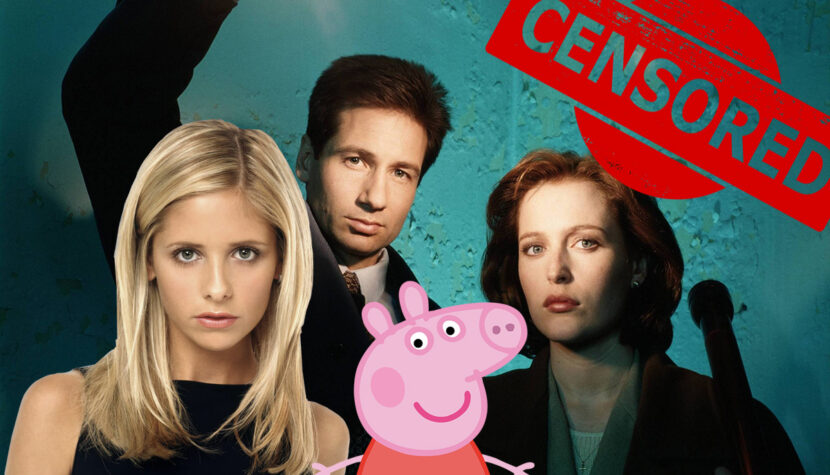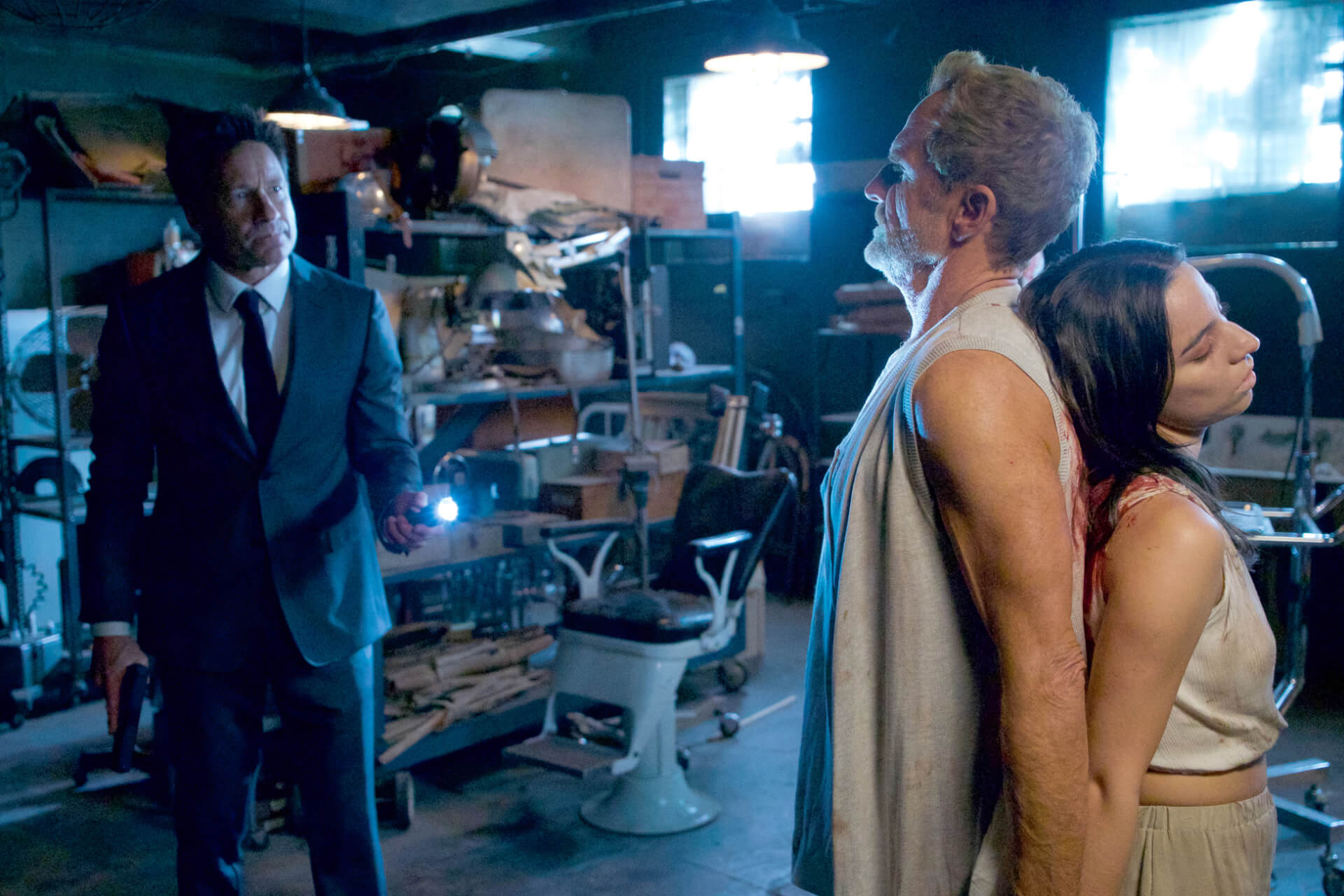The Episodes Of TV Series That Have Been Banned From Airing

Drastic scenes from news broadcasts are served to us for breakfast, lunch, and dinner; moreover, we have become indifferent to the vulgar language and incorrect pronunciation flowing from the small screen, and tasteless jokes on serious topics don’t shock us either.
It might seem that in this era of so-called progressing liberalization of television content, there’s no place for bans and censorship of any kind of production. However, in the “latest” history of television, examples can be found of episodes of series whose airing was banned, suspended, or postponed for some reason. Why such severity towards TV series?

When you don’t know what it’s about, it’s definitely about money. However, I won’t write about financial matters here; instead, I will provide a few examples of series episodes that fell victim to censorship and had to disappear from small screens for some time or forever. The reason for such a state of affairs may include: some kind of controversy that the episode could or did provoke; contents too risky for prevailing television standards; involvement of one of the actors/creators in morally questionable actions outside the series; too early inspiration by real events or their portrayal, which could painfully touch their participants or emotionally connected people; displaying content unsuitable for children in children-targeted series.
Thanks to the above reasons, the following compilation is an exception because where else besides episodes of brave Fireman Sam adventures or the pinky Peppa Pig will you find, for example, the most terrifying episode of The X-Files (1993-2002)?
Examples of banned episodes of children’s series

Let’s start innocently enough with seemingly innocent animated series for the youngest, such as the aforementioned Peppa Pig (2004-). In one of the episodes of this popular British production beloved by children worldwide, the main character plays with her little brother George something like a dollhouse. At one point, George goes to the bathroom to fill a pitcher with water to pretend tea for the dolls. Suddenly, a spider comes out of the sink, which the child takes to the toy bed in the dollhouse. The spider scares Peppa. In panic, the pig runs to her parents, and her dad explains that the animal her brother brought is friendly and should not be feared. At first glance, there might seem to be nothing inappropriate in this episode, but not for Australians. According to statistical calculations, from 2000 to 2013, over 12 thousand people bitten by dangerous spiders were admitted to hospitals in Australia. Therefore, Peppa Pig’s episode was banned in this country because there was a risk of an increased number of spider bites among children.

If the above example of banning the episode’s airing was related to regional issues that simply weren’t considered, the reason for banning Fireman Sam is much more serious. In the episode Troubled Waters, one of the series’ characters, carrying a tray of drinks, slips on a piece of paper. As a result of the fall, stacks of paper placed in the room start flying everywhere. Some of the papers were inscribed with Arabic letters. During careful analysis by attentive viewers, it turned out that we are dealing with a copy of a page from the Quran. Destruction or disrespectful treatment of the holy book of Islam is considered sacrilege, which is why a storm erupted around the episode. The series producer ended cooperation with Xing Xing, the company supposedly responsible for the controversial image, and publicly apologized for the episode. The episode was removed from the video catalog at Channel 5’s request.

From animated series for the youngest, let’s move on to those intended for slightly older viewers. You probably remember the adventures of the unusual siblings, Cow and Chicken (1995-1999). The creators of this popular cartoon went all out, and with each subsequent episode, they pushed the boundaries of decency. It’s worth noting that despite numerous quite transparent sexual innuendos and tasteless jokes, it was still a cartoon for children. Therefore, it’s not surprising that among over a hundred episodes of this comedy series, there was one whose airing was banned. This episode is Buffalo Gals, which contains allusions to lesbian sex that are too visible. Additionally, from the TV speakers, one could hear phrases such as “carpet munching” and “pitching and catching,” which, without delving into details, in urban slang mean oral and anal sex, respectively.

Closing the issue of banning episodes of animated series due to inappropriate content for children, it should be noted that besides the above examples, there are many, many more. Therefore, instead of elaborating on all such family animations, I will only signal surprising cases of popular series where controversies that led to the banning of episode airing can be found. These include, among others, the alcohol-themed episode of Animaniacs, the epilepsy-inducing episode of the Pokémon series, or the stereotypically portraying mentally disabled characters in My Little Pony: Friendship is Magic.

Cartoons for adults
Perhaps due to the fact that in our youth television offered us such refined entertainment as cartoons like Cow and Chicken, have we now become big fans of adult animations? Maybe. In any case, today we are dealing with a plethora of such series. However, for many years, The Simpsons (1989-) and South Park (1997-) have been reigning supreme among them. In them, among other things, you will find razor-sharp jokes aimed at provoking controversy and “taking down” virtually every social, religious, or cultural group. However, as it turns out, even in hell, it can sometimes be too hot, and some episodes of the mentioned series have been banned from airing.

A curious example of banned episodes of series is the episode of The Simpsons titled The City of New York vs. Homer Simpson, which premiered on television in September 1997. According to conspiracy theorists, The Simpsons predicted attacks on the World Trade Center in it. The evidence for this is said to be the newspaper, on the cover of which the word “New York” is juxtaposed with the number “9” and two towers resembling “11.” I remind you that the mentioned episode was aired four years before the tragic attacks in New York. After the 9/11 events, the episode was not shown for some time. It returned to screens after several years, but some scenes near the towers had to be cut from the episode.

In the case of South Park, the biggest controversies were caused by episodes 200 and 201. In the 200th episode, there is a portrayal of Muhammad in the costume of a teddy bear. In turn, in the 201st episode, the image of the Islamic prophet was censored with a black, rectangular bar with the word “censored” written on it, and his speeches were “bleeped out”. Comedy Central banned the airing of both episodes both in the USA and abroad.
Buffy the Vampire Slayer (1997-2003), episode: Earshot
Here is an example of a ban conditioned by tragic events that occurred shortly before the planned airing of the episode. In April 1999, one of the largest mass murders in the history of educational institutions in the United States took place. Yes! I’m talking about the massacre at Columbine High School, based on which Gus Van Sant made the award-winning Elephant (2003) at Cannes. Although the Earshot episode of Buffy didn’t refer to the above events, because the massacre occurred a week before the planned episode airing, the TV station decided to postpone it to September 1999. The reason for banning the airing of Earshot was a scene in which a student loads a rifle. It could evoke one of the Columbine murderers.

Hawaii Five-O (1968-1980), episode: Bored, She Hung Herself
On January 7, 1970, CBS aired for the first and only time the episode Bored, She Hung Herself. The reason for banning the episode’s airing was the death of a viewer who decided to imitate yoga techniques shown in the series. The depicted exercise method also resembled asphyxiophilia, a psychiatric disorder involving oxygen deprivation for sexual gratification.

The X-Files (1993-2002), episode: Home

Finally, the crème de la crème of all banned episodes, the terrifying Home from The X-Files series. In this case, banning the episode actually brought it tremendous popularity. Home was first aired on October 11, 1996. However, it didn’t make a good first impression. The episode was accused of overly drastic and realistic content regarding the consequences of incest. Interestingly, the episode was based on Charlie Chaplin’s accounts, who actually encountered a similar family and described it in his autobiography. After banning the episode, it was repeated in 1999 during a Halloween marathon with The X-Files series. Before the re-airing of the episode, viewers were warned that they would be dealing with one of the most repulsive episodes in television history.

